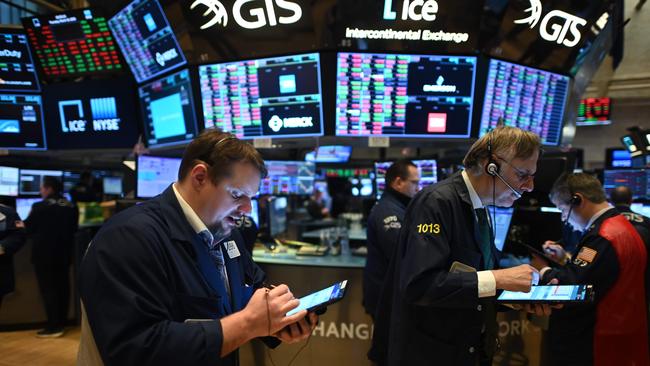Bear market to drag on, amid rising inflation, Ukraine war and Covid-19 fears: Robert Gottliebsen


At the moment the greatest fear in the market is that US inflation will settle in at around the eight to nine per cent mark and the techniques that the Federal Reserve will apply to reduce that inflation will create a severe US recession.
The standard central bank inflation antidote is to raise interest rates to a level that boosts unemployment and reduces demand so as to trigger price restraint. The US is already well down that track and it is being followed by many other central banks including Australia. What makes the current US tightening so hazardous is the unknown impact of the reversal of quantitative easing – quantitative tightening.
The Federal Reserve has stopped buying US bonds and is allowing bonds to mature and in the process is removing money from the system at an increasing rate creating the potential of a combination of interest rate hikes and a gigantic credit squeeze. Just as there were no precedents for the scale of the quantitative easing, there are no precedents for the reversal. This creates deep fear.
But in a strange way the US anti-inflation task is made easier because, in the wake of the higher interest rates, the world money markets have chosen the US dollar as the “safe haven”. Traditional safe haven havens like gold are sliding in price.
Accordingly, the US dollar is rising which counters inflation because it reduces the price of imports.
But the fears in the current market extend well beyond the boundaries of the US although in some cases, overseas events are actually helping fight US inflation.
But the situation in Europe is dire as the economic cost of slashing dependence on Russian gas and oil is rising. Russia is selling discounted gas and oil into China and other countries and is threatening to cut off almost all supplies to Europe which is facing the combination of high inflation fuelled by a lower currency and accompanied by a deep recession.
The repercussions of this catastrophe are currently concentrated on European share, bond and currency markets but as 2022 progress is they will take on an increasingly political twist as individual countries, such as Italy, start to buckle.
Russian President Vladimir Putin believes he can win in Ukraine partly because Europe will not be able to stand the pressure.
And he hopes the Russian food blockade of Africa and other countries may trigger uncontrollable waves of refugee migration from Africa to Europe. We have seen in Sri Lanka how terrible events can cause the break down of government.
In China, the Covid-19 clampdowns have restrained consumer demand which the administration had hoped would drive the economy in 2022.
Australian retailers are experiencing the side effects and the expected price increases in imported goods have not materialised. America will be also be experiencing more competitive China pricing which will help its inflation fight.
China is now returning to it’s more conventional means of stimulation via infrastructure investment. But the slowdown in China when combined with events in Europe and the US is reducing the demand for commodities and lowering prices. These lower prices are bad news for the Australian budget deficit but they are helping curb US and world inflation – especially the oil fall.
China has dedicated policy of zero tolerance for Covid-19 and like the rest of the world is facing the onslaught of more variants, with a new one coming from India of particular concern.
If China continues it’s previous policy of zero tolerance there maybe be another sharp slow down in Chinese demand and return of supply chain issues.
Australia has adopted the reverse of the China policy and is operating a very open society. But that is stretching hospital systems particularly in Sydney and Melbourne and it is possible that if a new variant spreads around the nation it may not be sustainable.
All this is taking place in a world trying to shift from carbon based fuels to renewables. There are clear signs that some countries are being forced to abandon carbon emission aims to keep their societies running.
Australian share markets have fallen along with the world bear markets and housing auction prices and consumer confidence have begun to buckle under the weight of higher interest rates and tighter bank credit policies. But there remains strong consumer spending because of the large amounts of liquidity in the system.
Most retailers will report good profits for the year ended June 30 and while some are now being impacted by the slow down many are still enjoying strong trading conditions.
It is as though we have an island of prosperity amid the troubled world
Australia’s industry superannuation funds have warned that a return of the wonderful performance of recent years should not be expected in the short to medium term. The 2021-22 negative returns may be repeated in some of the years ahead.
Bear markets do not last forever but most last for at least a year. This one is likely to be extended until some of the basic drivers of global misfortune such as inflation, the Ukraine war, and Covid-19 are brought under control or no longer exist.







Global share markets are now developing into a traditional bear market pattern driven by increasing fear. As in all bear markets, periodically there are strong rallies with the share market rises multiplied by short covering – particularly when an event has been well anticipated. But then the deep seated fears take over.